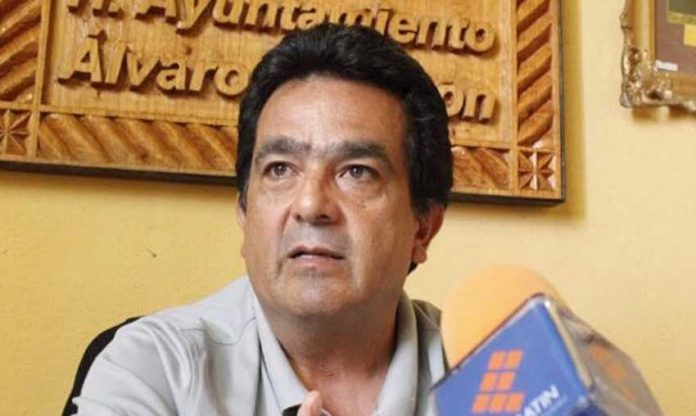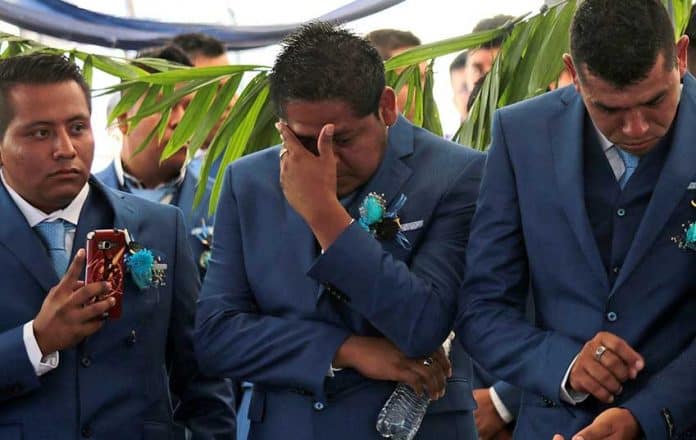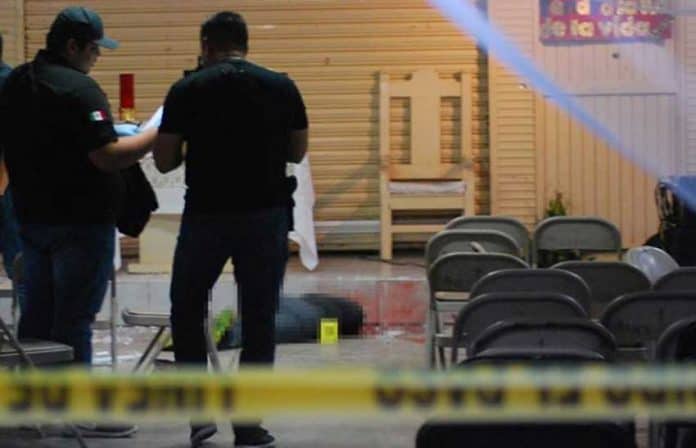Over 30 million Mexicans voted for Andrés Manuel López Obrador in the country’s July 1 presidential election, handing the former Mexico City mayor a landslide victory over three opponents with 53% of the vote.
López Obrador’s agenda – to root out corruption, reduce violence, rethink Mexico’s gas and energy policy, welcome migrants and spur growth in impoverished areas – is ambitious in this traditionally conservative Latin American nation.
López Obrador has run for president twice on a similar platform, in 2006 and 2012. He lost both times.
To win this year, López Obrador’s young Morena party joined forces with several smaller parties from both right and left to build a triumphant but strange electoral coalition called “Juntos Haremos Historia,” or Together We’ll Make History.
The people now charged with turning López Obrador’s promises into policy when he takes office in December will come from wildly disparate backgrounds, including social progressives, pragmatic business tycoons, evangelical Christians and committed Marxists.
The coalition even made room for high-level defectors from all three mainstream Mexican political parties, including the Institutional Revolutionary Party of the outgoing current president, Enrique Peña Nieto.
López Obrador has promised to “transform” Mexico.
With such a wildly varied team behind him, can he actually deliver?
Mexican voters punished Peña Nieto and his party, called el PRI for its Spanish acronym, for promoting corruption, allowing deep inequality to fester and turning a blind eye to the country’s ferocious violence. PRI candidate José Antonio Meade received just 16% of votes on July 1.
But, as a political analyst born and raised in Mexico, it’s hard not to notice that López Obrador’s new ideologically muddled Morena party looks an awful lot like the old PRI.
Until the disastrous presidency of Peña Nieto, who is finishing out his six-year term with a 21% approval rate, the PRI was an extraordinarily powerful, adaptable and resilient political machine. It ruled Mexico almost uncontested for nearly a century.
The PRI emerged from the unrest that followed the Mexican Revolution, which ended in 1920. Ten years of civil war left Mexico with a devastated countryside and perhaps 2 million dead. For years afterward, dozens of powerful militia-backed strongmen, or “caudillos,” vied for power.
To stabilize the country, President Plutarco Elías Calles in 1929 created a political party, the National Revolutionary Party, with the explicit aim of distributing power among the surviving revolutionary caudillos. It would later rebrand as the Partido Revolucionario Institucional, or PRI.
Calles wanted his party to be ideologically indeterminate, because he thought a broad-based political organization would discipline and unify the caudillos without threatening their personal political interests.
So he instructed aides drafting the new party’s platform and bylaws to synthesize fascism, communism and the ideological principles behind the American, English and French political systems.
Calles particularly admired how Benito Mussolini organized Italian workers and business owners into state-sponsored labor collectives to prevent class conflict and quash social unrest.
This model allowed Calles to establish a versatile, hybrid governance system.
The PRI successfully incorporated, moderated and controlled different interest groups. The PRI was the party of workers and peasants, of professionals and bureaucrats.
When political conflicts occurred, such as two party members vying to lead the same state, party leaders would mandate internal arbitration. The “losing” party was rewarded for his loyalty with hard cash or a political favor. Backroom negotiations and corruption became the governing style of Mexico.
It was a winning strategy. The PRI ran Mexico uncontested from 1929 until 2000.
Political scientist Giovanni Sartori called the PRI a “pragmatic-hegemonic party” – a regime that dominates by being practical and operative. Its only ideology was power.
The PRI was also authoritarian, sometimes brutally so. During its nearly 80-year reign, dissidents “disappeared” and student protesters were gunned down. Journalists were bought off.
In 2000, Vicente Fox, of the center-right National Action Party, became modern Mexico’s first non-PRI president. The PRI soon returned to power, putting Peña Nieto in office in 2012.
Superficially, López Obrador’s Morena party looks nothing like the PRI.
Morena nominally has a clear ideology. According to party literature, it is a “left-wing political organization.” The president-elect’s promises to govern “for the poor” and to respect human rights are classically leftist.
So it made sense when López Obrador recruited the Mexican Labor Party, a collection of Maoist activists who revere the Chinese Communist Party, to join his electoral coalition earlier this year.
More difficult to understand was his decision to appoint as advisers high-level defectors from Fox’s conservative National Action Party and from the PRI itself.
Those who thought of López Obrador as a leftist were most troubled by Morena’s alliance with another party, the Social Encounter Party.
This fundamentalist evangelical party opposes legalizing same-sex marriage and abortion in Mexico – both issues López Obrador says he supports.
When questioned about his alliances, López Obrador simply responds that Morena welcomes all “women and men of goodwill” who want to “transform” Mexico.
Together, the parties in López Obrador’s coalition won 69 of 128 Senate seats, giving it a narrow majority. Seven of those seats belong to the Social Encounter Party.
Morena-affiliated candidates won 307 of 500 seats in Mexico’s lower house, the Chamber of Deputies. Of those, 55 went to the Social Encounter Party.
The Morena candidates for mayor of Mexico City and four state governors were also elected. Morena now dominates most state legislatures.
Constitutionally, López Obrador will have the power to replace up to two justices on Mexico’s Supreme Court and to pass constitutional amendments almost unopposed.
Recently, aides to López Obrador suggested that truly transforming Mexico might require rewriting its Constitution. That requires a two-thirds legislative majority, which López Obrador could attain by winning over just a handful of deputies and senators outside his coalition.
Critics fear that López Obrador might seek to abolish the single six-year presidential term limit established in Mexico’s constitution – a suggestion the president-elect denies.
But most Mexicans seem more excited than concerned about López Obrador’s strange bedfellows and substantial powers.
Back in April, 89% of Mexicans believed the country was on the wrong track, according to IPSOS polling. Post-election, a survey by the newspaper El Financiero found, 65% feel optimistic about Mexico’s future.
The president-elect ran as a political outsider, but he is a career politician.
Like most Mexican politicians of a certain age, López Obrador was once a member of the PRI, from 1976 to 1983. He ran for president as a candidate of another party, the Democratic Revolution Party.
He understands exactly how the PRI dominated Mexican politics for so long.
Like PRI founder Calles before him, López Obrador has built a hybrid political machine designed to unite powerful political elites regardless of ideology.
According to Morena’s declaration of principles, the party is “an open, plural and inclusive space for the participation of Mexicans from all social classes and diverse thought currents, religions and cultures.”
The only requirement for joining Morena, notes Mexican political theorist Jesús Silva-Herzog, is to obey López Obrador’s leadership.
![]() Where will that leadership take Mexico?
Where will that leadership take Mexico?
Luis Gómez Romero is a senior lecturer in human rights, constitutional law and legal theory at the University of Wollongong.This article was originally published on The Conversation.








